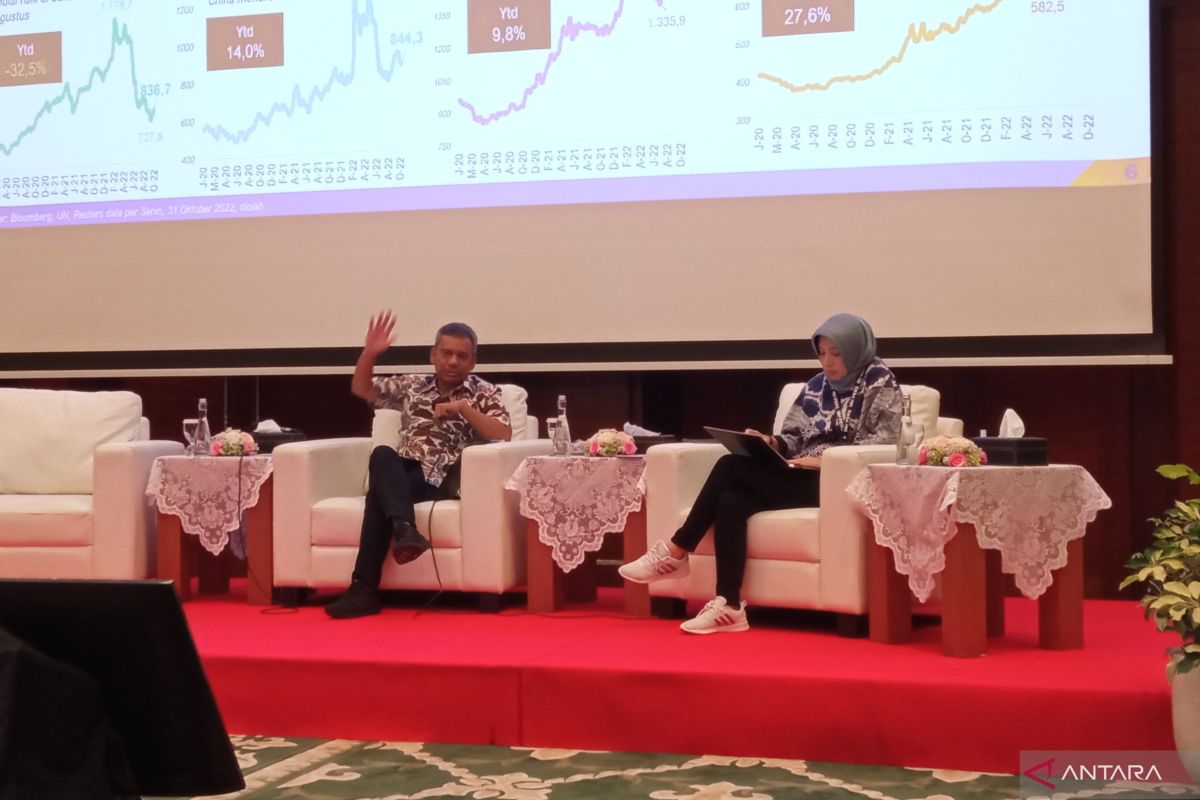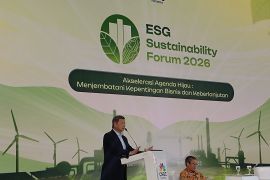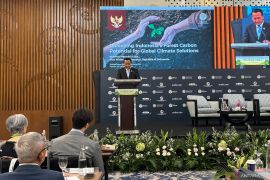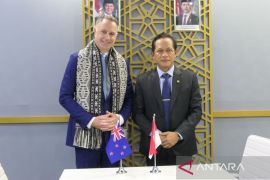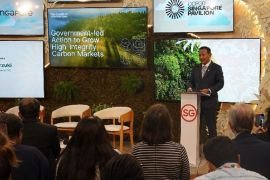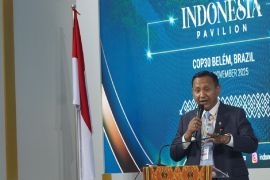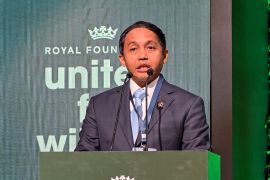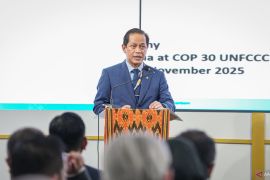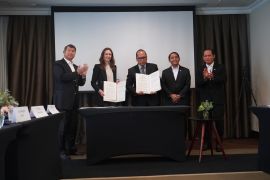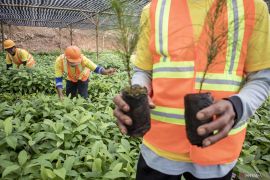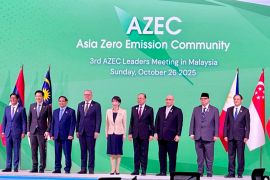The carbon tax that we put in the Tax Harmonization Law (UU HPP) is not a tax on emissionsJakarta (ANTARA) - Deputy Minister of Finance Suahasil Nazara said the carbon tax became an instrument to achieve the 2030 Nationally Determined Contribution (NDC) target as well as net zero emission (NZE) or zero emissions by 2060.
As per the latest NDC document, Indonesia targets an emission reduction of 31.89 percent through its own efforts, and by 43.20 percent with international support by 2030.
During a media gathering at the Ministry of Finance's Office here on Friday, Suahasil Nazara emphasized that the carbon tax regulation contained in the Tax Harmonization Law (UU HPP) was not a tax on any carbon emissions issued by business entities.
"The carbon tax that we put in the Tax Harmonization Law (UU HPP) is not a tax on emissions. If we conduct economic activities, we issue carbon emissions, since as long as emissions come out, we have to pay taxes, that is not it. The carbon tax is an instrument that we will use to get to net zero emissions," Nazara affirmed.
Related news: Achieve SDGs target to preserve environment, civilization: Ministry
If a business entity emits carbon emissions greater than the standard set in its sector, it can later choose between two options.
First, make payment of the carbon taxes to the state or, second, look for carbon converters in the carbon market.
"If you look for it in the carbon market, it means that the business entity buys carbon from the carbon market. Hence, there must be a carbon market," he remarked.
Related news: Space20 focuses on using space technology to tackle climate change
In line with this effort, the government, through the Financial Services Authority (OJK), is preparing carbon trading infrastructure through carbon exchange, in line with the issuance of Regulation of Minister of Environment and Forestry of the Republic of Indonesia Number 21 of 2022 on the Implementation of Carbon Economic Values.
Regulation of the Minister of Environment and Forestry stipulates that the development of carbon trading infrastructure through carbon exchange is conducted by developing carbon trading infrastructure, regulating the use of state revenues from carbon trading, and/or administering carbon transactions.
With the third-largest tropical forests in the world and spanning an area of 125 million hectares, Indonesia has vast potential to lead the carbon market that is estimated to absorb 25 billion tons of carbon.
Related news: COP-27: Indonesia to urge nations to raise climate ambition
Related news: Climate change causing an increase in infectious diseases: BRIN
Translator: M Heriyanto, Azis Kurmala
Editor: Fardah Assegaf
Copyright © ANTARA 2022
